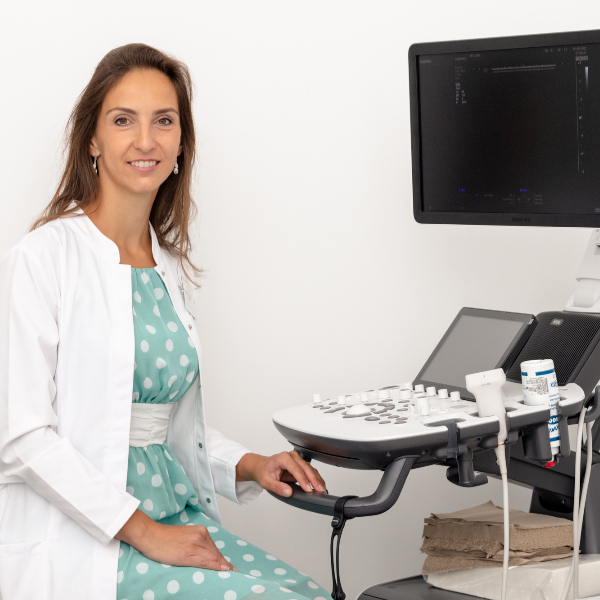How much sugar do we really need?
During the past ten years, diabetology has seen a new approach to dietary practice. Up to now, recommendations said that 50-60 % of energy intake should consist of carbohydrates, up to 35 % fat, and 10-20 % proteins. At the beginning of my career, the meal plans I was issuing to my patients contained 150 to 250 grams of carbohydrates per day. The purpose of these meal plans is to show the patient what to eat, how to reduce their calorie intake, and how to split the food they eat into many portions a day. Nevertheless, I was asking myself why a body that is incapable of dealing with carbohydrates should ingest 250 g of them a day.
We divide carbohydrates into two groups. Simple carbohydrates are all sugars - sweeteners, fruit, and lactose (milk sugar). Complex carbohydrates are metabolized more slowly, and are therefore more suitable for diabetics (for example whole-grain bread, brown rice, potatoes, or legumes). None of these carbohydrates are necessary for life, as the body can get the energy it needs from proteins and fats.
What is diabetes, actually?
Diabetes mellitus is caused by an absolute or relative lack of insulin. This is a hormone that we need to process sugar in our food. Type 1 diabetics are unable to produce insulin, and need to inject it every time they eat a meal or snack. At the start of their illness, Type 2 diabetics have an entirely different problem. Their pancreas functions, they have lots of insulin, but their body doesn't recognize or react to it. We call this phenomenon insulin resistance. Type 2 diabetes is treated with pills that reduce the severity of the insulin resistance (or force the pancreas to produce even more insulin to overcome this defect). Over time the pancreas wears out and it is then necessary to start applying insulin just like a Type 1 diabetic.
The more carbohydrates a portion of food contains, the more insulin is needed. For a Type 1 diabetic, we have to correctly calculate the dose of insulin needed for a given food. It is very difficult to calculate how much insulin is needed to cover a given portion of food so that the resultant blood sugar level is normal. We have to take into account so many variables (mental and physical health at the given moment, physical activity in recent days, type of food and how it is prepared, or even the time of day) that we are very often off. In the case of a Type 2 diabetic the pancreas is stimulated excessively, creates too much insulin, and every such food reduces its life.
The more an organism is subjected to the effects of insulin the more fat it stores, resulting in weight gain. When insulin levels are high, the body cannot burn calories and merely stores energy as fat, and one is soon hungry again. This causes a vicious circle.
How can we keep blood sugar levels under control?
For a Type 2 diabetic, weight loss is a fundamental key to successful treatment. Since I began practising, my favourite meal plans included 150 grams of carbohydrates per day. When I first heard the term "low-carb" diet, I was immediately interested. How can we help the pancreas stay functional as long as possible? By reducing the quantity of carbohydrates in the diet, thus reducing the need to produce insulin. This allows the body to burn calories and the vicious circle is broken.
Low-carb diets recommend consuming approximately 50-130 grams of carbs a day.
I would like to note that a strict "keto diet" that reduces carbohydrates to 30-50 grams a day significantly reduces the selection of foods one can eat. Such a meal plan must be very precisely assembled to prevent a lack of some basic vitamins and minerals. It has greater justification in the case of a Type 1 diabetic whose blood sugar values are very difficult to adjust.
I focus on the less severe form, where some side dishes and fruit can be consumed in limited quantities. A low-carb diet increases the percentage of fat intake. However, that doesn't mean that a diabetic can eat processed and fatty meats, cheese, and other fatty milk products in unlimited quantities. This type of diet means a very careful selection of healthy fats. We try to select plant-based sources and build meals around vegetables and high-quality proteins.
Type 2 diabetics are usually advised to eat five to six smaller meals a day, keeping the pancreas at constant attention and constantly producing insulin. A certain group of patients is happy eating smaller portions of food, because if they are even a bit hungry they would eat substantially bigger portions in an uncoordinated manner. However, some people don't like this sort of arrangement, and even have to force themselves to eat breakfast or between-meal snacks. That's of course nonsense, and a quite rational rule applies: Eat only when you feel hungry, and stop eating before you feel full. If you eat a low-carb diet based on fats and proteins, you don't need to snack between meals, because it takes the body longer to digest the food. Patients thus usually eat twice or thrice a day. In the meantime, their pancreas rests and only small quantities of insulin are needed.
I consider a low-carbohydrate diet, not a strict keto diet (less than 30 grams of carbs a day), to be one of the most natural types of diets for diabetics or pre-diabetics, patients with a less severe sugar-processing disorder.
Our eating habits are influenced by our genes, family customs, and, for example, also our work. All aspects of one's lifestyle need to be taken into account, and we need to select what is appropriate for the given patient.
At My Clinic we emphasize an individual approach to each patient. Members of our My Personal and My Exclusive programs have a diabetes examination as part of their existing services. For more information, call our customer service line: 222 900 900.



 +420 222 900 900
+420 222 900 900


